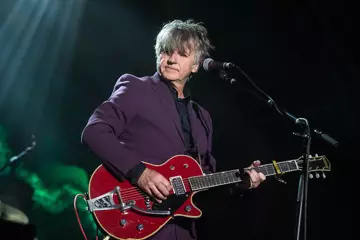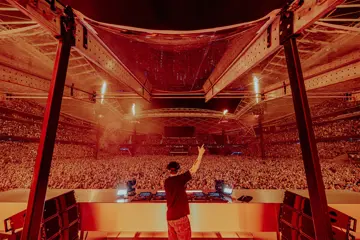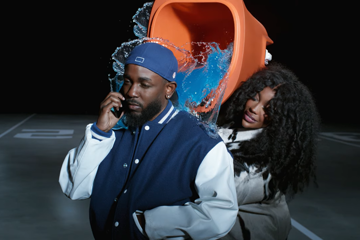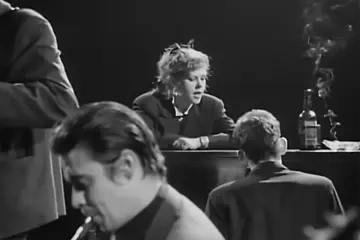In the penultimate episode of the second season of Twin Peaks (1990-1991), Laura Palmer (Sheryl Lee) appears before FBI Special Agent Dale Cooper (Kyle MacLachlan) in the Red Room - a place that exists in a liminal point between good and evil, life and death. Speaking backwards, she tells Cooper, "I'll see you again in 25 years".
To many viewers, Laura's final words felt more like one of the series' many non-sequiturs than a promise, which made the announcement that Twin Peaks would return to screens just over a quarter-century later a genuine surprise. To say that expectations were high is an understatement. And yet, almost unfathomably, Twin Peaks: The Return reestablished itself as one of television's most boundary-breaking, complex and captivating offerings.
For many fans, the real joy of Twin Peaks: The Return was surrendering to Lynch's world, in all its uncanniness, camp, humour and horror - and of course, reconnecting with its inhabitants. The majority of the original cast members (and many crew members) eagerly made the journey back - and this month, five of the show's biggest stars will embark on a nationwide speaking tour to reveal what it was really like to return to Twin Peaks.
Sheryl Lee (Laura Palmer)

"I almost had no sense of 30 years having gone by"
It's fitting that the final moment of Twin Peaks: The Return is Laura Palmer's bloodcurdling scream, echoing out beyond her cursed family home and above the Douglas firs in the woods beyond. Laura's tragic story is the heart of the entire series; her homecoming queen portrait the show's most recognisable image. It's ironic, then, that Sheryl Lee - now 51 - had not even watched Twin Peaks since its premier when David Lynch asked her to reprise her role in 2015. "[The Return] came completely out of the blue," says Lee. "I never expected it or thought about it at all. It was a different part of my life."
Don't miss a beat with our FREE daily newsletter
Appearing in The Return as Laura - but also as the wide-eyed Carrie Page - Lee embraced re-adjusting to the very particular process of working with David Lynch. "It's a really different way of working," she says. "It's absolutely thrilling because you look at your scene, and think 'Oh, it's about this', but then you get to set and he has all these other dimensions and layers to it. He's warm, funny and creates a very safe environment, which you need when you have to go to those emotional depths."
Reflecting on the weight of playing a character as iconic as Laura Palmer, Lee reveals that there is one common thread in encounters with fans that she will never quite get used to. "Often, people share with me their story of incest, or being molested, or being in unhealthy relationships. I'm deeply touched when someone shares that with me... but I can't believe that it seems like the statistics haven't gone down at all - it's happening as much as it was 25 years ago."
Dana Ashbrook (Bobby Briggs)

"I trust David so much that if he tells me to do something crazy, I'll do it"
There's a scene in Twin Peaks: The Return when former bad boy Bobby - now a warm-hearted deputy in the sheriff's department - walks into a room, comes face to face with a photograph of Laura Palmer, and bursts into tears. There's a real sense in The Return that the community is still recovering from Laura's tragic death and the events that followed - and nowhere is this more poignant than in this moment. "I loved doing that scene," says Ashbrook. "As an actor, you have to have this imagination about how important Laura was to Bobby... so it's going to have a real impact on you."
Having complete trust in Lynch's vision meant that Ashbrook had no problem jumping into some of Bobby's more surreal scenes (in particular, that scene involving the woman in the car and her violently sick passenger). "David doesn't explain what scenes like that mean. He doesn't have to explain though, because my character doesn't know what the hell is going on anyway! It's a natural, real reaction. It was kind of left there for people to figure it out."
Sabrina Sutherland (Executive Producer)

"I wasn't worried about the hype"
Sabrina Sutherland and David Lynch have been working together for decades, and it all began when Sutherland worked as a production coordinator on the second season of Twin Peaks in 1991. Despite the immense hype around the show, Sutherland never worried about whether The Return would satisfy expectations. "Neither did David," she says. "In some respects, no matter what you do, you're going to disappoint somebody. But I'm super happy that nobody listened to anybody saying that they just wanted basically the same thing again. I'm glad it was written in such a way that it wasn't so nostalgic that it was a repeat of itself."
Sutherland often meets fans, and while there's no end to the theories that they come up with, there is one question that remains the same. "Everybody asks if there's going to be a fourth season," she says. "At this stage, David has been working on painting - we're using this as a break so he can relax a little. I will say that we spent about two and a half years of working nonstop, and it's very taxing on me, on him, on everybody. It was very difficult to do this show."
Twin Peaks Conversation With The Stars tours Australia from 25 Aug.















